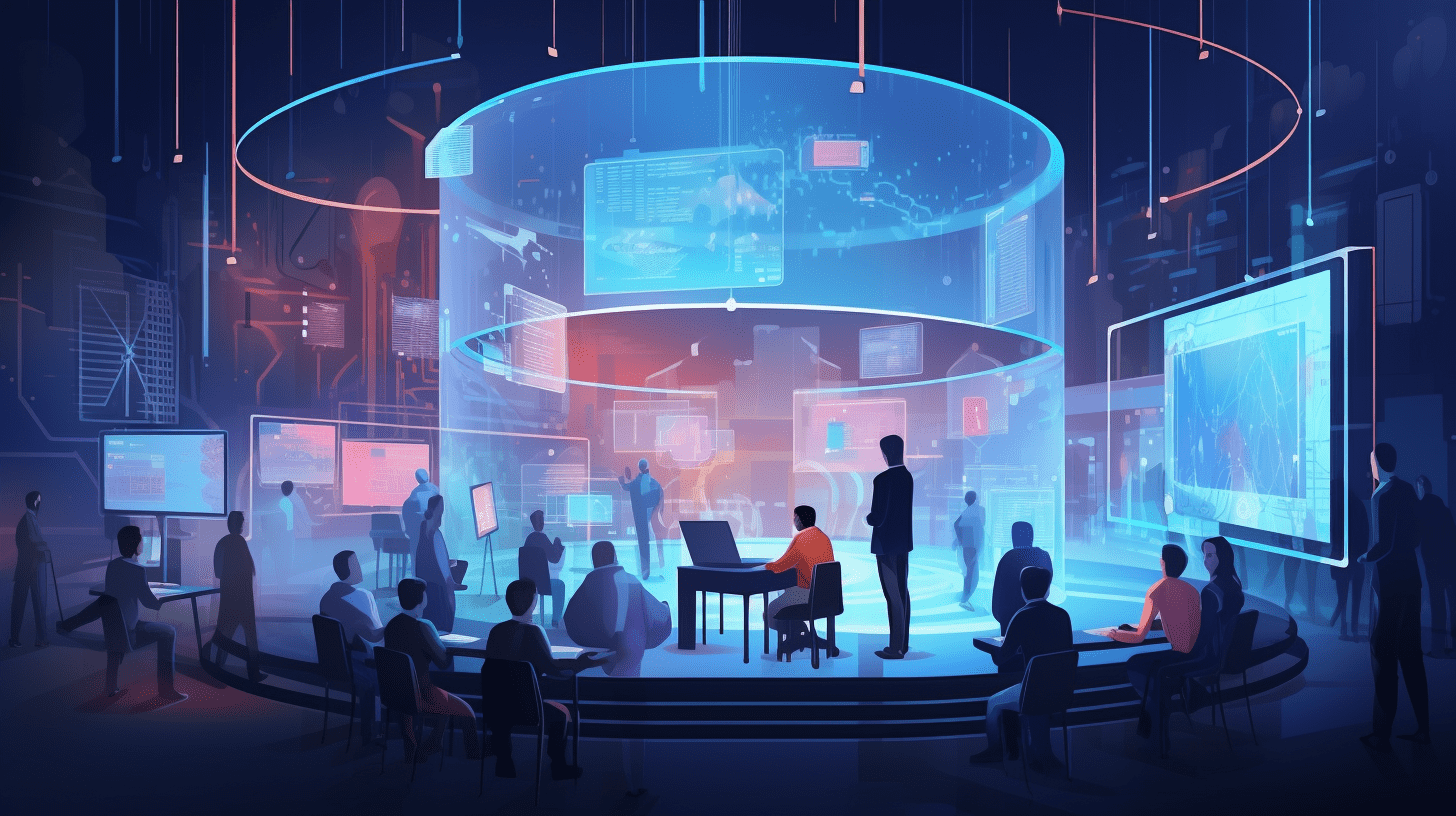
Trump calls for a rate cut, Powell "faces" him: tariffs far exceed expectations, or continue to push up inflation, the Fed will wait and then take action.
U.S. President Trump once again publicly urged the Federal Reserve to cut interest rates quickly, but Federal Reserve Chairman Powell does not seem to be "listening". Commentaries suggest that Powell's recent remarks are even more hawkish than his stance two weeks ago after the Fed meeting.
On Friday, April 4th, during the early trading session of the U.S. stock market, Trump posted on social media twice, directly calling out Powell and demanding a rate cut. His posts first stated that this would be the "perfect time for Powell to cut rates", as Powell has always been "slow" in his actions, and now he can change his image and "speed up".
Trump then said that energy prices are falling, interest rates are dropping, inflation rates are declining, even egg prices have fallen by 69%, while employment rates are rising, all within a two-month period, "a huge victory for the United States". Powell should cut rates, "stop playing politics".
However, in a public speech just minutes after Trump's post, Powell quickly contradicted Trump. In his first public statement after Trump announced widespread tariffs, Powell reiterated that the Fed needs to wait and assess the situation before taking action. He pointed out that the new tariffs announced by Trump far exceeded expectations and could continue to push up inflation, and the Fed needs to ensure that inflation expectations do not rise.
According to CCTV News, Powell stated that the Fed was shocked by the scope of the tariffs imposed by Trump, which means that the impact of tariffs on the economy could be greater than previously thought. Powell did not disclose whether he believed the U.S. economy was heading towards a recession, but he admitted that the uncertainty of trade policy was putting pressure on businesses, and more and more forecasts showed that the risk of economic recession was rising.
Tariffs "far exceed expectations," the impact on the economy may be greater than expected
Powell believes the U.S. economy currently looks strong, but points out that because of Trump's proposed reciprocal tariffs, the Fed is facing a "highly uncertain" outlook. He said that the recent announcement of tariffs exceeded expectations significantly and believed that the impact of tariffs on the economy could also be larger than expected.
"The uncertainty remains high, and what is now clear is that the extent of the tariff increase will significantly exceed expectations."
"The economic impact may also be the same, including rising inflation and slowing growth. The scale and duration of these (tariff) impacts are still uncertain."
Powell evaluated that the non-farm employment report released on Friday further proved that the U.S. labor market is "overall balanced, and not a major source of inflationary pressure." He stated that the unemployment rate is still at a low rate of 4.2%, and with a combination of low layoff rates and slow labor force growth, the unemployment rate remains "largely stable".
To maintain stable long-term inflation expectations, it is too early to determine the appropriate path of monetary policy now
Powell emphasized the threat of tariffs and indicated that the Fed will focus on controlling inflation. In a prepared speech, he stated:
"Our duty is to maintain stable long-term inflation expectations and ensure that one-time price increases do not become a persistent inflation problem."
"We can wait until (the situation) becomes clearer, and then consider adjusting our policy stance. It is too early now to determine what is the appropriate path for monetary policy."
The impact of tariffs on boosting inflation may be more lasting
After the most recent Federal Reserve monetary policy meeting two weeks ago, where it was decided to continue the pause on interest rate cuts, Powell had previously thrown out the temporary impact of tariffs. At that time, he said the baseline expectation remained that the impact of tariffs on inflation would be temporary. When discussing the impact of tariffs on Friday, Powell admitted that tariffs could continue to affect inflation. He said:
"While tariffs are highly likely to at least cause a temporary increase in inflation, it is also possible that the effects could be more lasting. To avoid this, it will depend on whether long-term inflation expectations remain stable, the scale of the impact, and how long it takes for the impact to fully prices."
Commentaries suggest that compared to his previous speech, Powell more directly acknowledged the risks of tariffs boosting inflation, which is noteworthy.
Data still shows a robust economy, but uncertainty pressures the Fed to stay away from politics
In the Q&A session after reading his speech, Powell made it clear that he would not respond to any publicly elected government officials' comments, effectively declining to comment on Trump's earlier calls for a rate cut.
When asked about the risk of an economic recession, Powell stated that the data "continues to show a robust economy", but he understands that uncertainty is putting pressure on the American people. He acknowledged that tariffs were higher than expected and said: "We still do not know what the final outcome will be."
Powell stated that people expect the Fed to tell the truth, "and that's what we're going to do," and added that the Fed is not responsible for trade policy.
Powell emphasized that the Fed is not a political organization, and Fed officials do not comment on fiscal policy.
"We try to stay away from political agendas."
Powell said he hoped the Fed was a "source of calm, rational analysis, and stability."
The uncertainty will diminish over the next 12 months. It is too early to draw conclusions now, wait for clarity, and now is a good opportunity for the Fed to take a step back from easing
Regarding the current uncertainty, Powell said that over the next 12 months, this uncertainty should diminish, and the actual impact of new government policies should become apparent. The short-term impact of policies is highly uncertain.
Powell insisted that the Fed needs a clearer understanding of how White House policies will affect the economy before drawing conclusions now.
"We are waiting for the clarification of the policy path."
Powell believes that now is a "good opportunity" for the Fed to take a step back after a series of rate cuts and wait for the situation to become clear.
The Fed does not need to rush to cut rates
Powell mentioned the more worrying risk of stagflation in the U.S. economy recently, where if both unemployment and inflation rise, it would put the Fed in a difficult situation.
Powell stated unequivocally that Fed officials obviously do not want such a situation to arise. In case of stagflation, Powell believes Fed officials need to consider how far each variable is from the employment and inflation targets and how long it will take to return to the targets. He said, typically, "if a variable is further from the target, you will"Pay attention to it.Powell went on to say that trade, energy, climate, and immigration are not within the scope of the Fed's responsibilities. The Fed cannot get involved in issues that are not its responsibility.
Powell said, "I feel that we (the Fed) do not need to rush to change interest rates." This statement raised questions from the host of the event, who asked, "Really?"
Powell went on to say that the Fed's staff is working hard to digest the tariff-related news this week in preparation for the economic outlook forecast to be released in June.
The real estate market may be affected by tariffs, and many, including the Fed, are taking a wait-and-see approach.
Powell mentioned that the real estate market may be impacted by tariffs and immigration policies, as these policies could lead to labor shortages and price increases in raw materials such as lumber.
Powell said that the U.S. has not built enough housing to meet the housing needs of the people. Housing prices will face upward pressure in the long term. Low mortgage rates will disappear over time.
Powell also mentioned that many people, including the Fed itself, are waiting for the situation to become clearer.
Like at the press conference last month, Powell once again emphasized the importance of distinguishing between "soft" data from surveys that may release economic alarms, and "hard" data that show a robust economy.
Powell said, "The economy is mainly driven by consumer spending." He said that sometimes survey results are negative, but even if sentiment is low, people will continue to consume. Business investment is also easily influenced by confidence. "Everyone should read the Beige Book (from the Fed)."
Having recently conversations with other central bank governors, Powell is fully committed to serving his full term as Fed Chair.
Powell said that he has not had group chats with central bank governors from around the world, but they exchange messages with each other. He also mentioned that he recently had conversations with other central bank governors, but did not disclose the specifics of the discussions. Powell emphasized that he and other central bank governors are not politicians, so they approach these matters in a non-political way.
Powell said that he really enjoys being the Fed Chair and is committed to serving his full term. He acknowledged that the job can be stressful and uncertain, but he reiterated his intention to continue until his term ends naturally in May 2026. He said, "I am fully committed to serving my full term as the Fed Chair."
RECOMMEND
©️2013 - 2025 GMT EIGHT Holdings. All Rights Reserved.
Contact: [email protected]


